On Feb 3, over 1200 women hailing from Puerto Rico to Anchorage descended upon Denver to accomplish what once seemed impossible: grow the first multibillion dollar industry led by women [and our non-binary colleagues]. Founded by Jane West and Jazmin Hupp in 2014, Women Grow is the largest network of cannabis entrepreneurs nationwide, in 44 cities and counting.
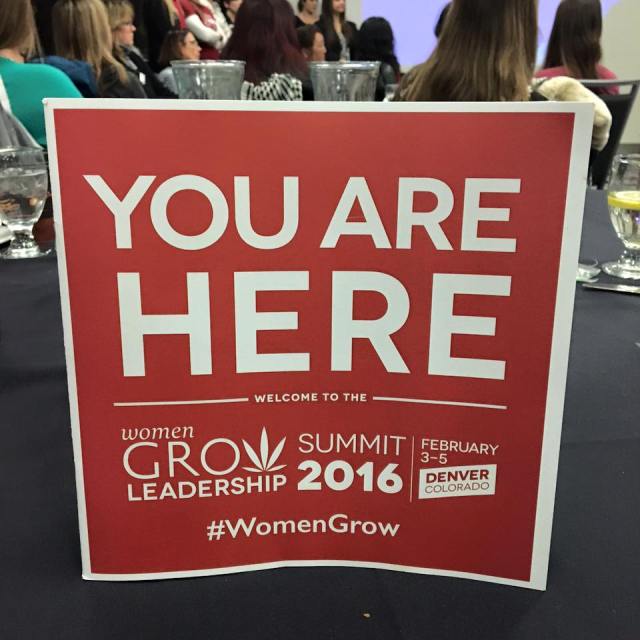
We made it to Denver. Women sitting at the opening plenary.
What does an industry run by women look like? One in which decisions are informed by the struggles of the legalization movement. Cannabis legalization gained popularity in California in the 1980s as a treatment for AIDS, and in the 1990s when cannabis arrests skyrocketed it became clear that legalization is as much a social justice issue as it is a medical one. Together, we came to discuss how to end the drug war, and what happens next: the creation of a responsible industry that reinvests in communities of color, that advocates for patients, and that creates a sustainable path towards green energy.
According to the Department of Labor, women make 80% of healthcare decisions, and first and foremost the push for cannabis started as a medical issue. The first medical cannabis bill passed the California legislature in 1992, during the peak of the AIDS crisis. Radical healthcare activist and recreational baker Brownie Mary introduced San Fran AIDS activists to brownies in 1981, when she started volunteering at the AIDS-focused Shanti Project after a run-in with the law. This swearing grandmama of cannabis fought alongside her gay BFF (GBFF) Dennis Peron for Proposition P, the first medical marijuana law. While I was a two-year old in a crib, our foremothers and fathers were fighting for their friends’ lives. Queer women were not the primary casualties of AIDS & HIV; however, they were often the caretakers.
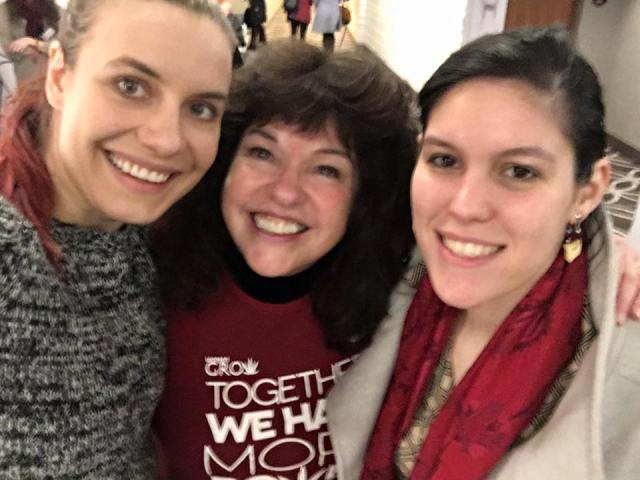
Left to right: Melissa Meyer, HealthMJ, Lynnette Shaw, the 1st owner of a legal cannabis dispensary, and the author, Mia, HealthMJ
Thanks in part to these early struggles, medical cannabis programs now exist in 23 states and recreational cannabis is legal in four of them. America’s favorite pot-smoking lesbian, cancer survivor and cannapreneur, Melissa Etheridge, gave the keynote speech. The woman who blew off haters by naming her coming out album “Yes I Am” first smoked cannabis with her high school girlfriend. (Who didn’t?) Little did she know her battle with breast cancer would have her asking roadies to score some green.
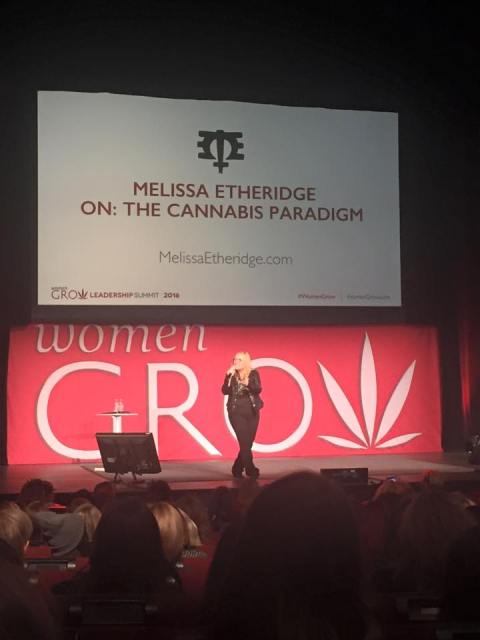
Melissa Etheridge on coming out as a cannabis advocate.
“I had a lump in my breast… my friend David Crosby calls me up — if you don’t know who he is, he’s the father of my two children, he calls me and says you MUST get some cannabis,” Melissa recounted to us, as if this were gay family Christmas and we were reminiscing about our blended families. “For the first time I am smoking medicinally, I am smoking just to feel okay, not to get high but just to be able to function, to talk to my children and not be doubled over in pain.”
The call for medical cannabis is compassionate care and the same case can be made for recreational legalization. As entrepreneurs, women have the chance to advance corporate social responsibility. Trailblazing venture capitalist Jeanne Sullivan spoke about lassoing a well-educated investor, but the most uproarious applause came when she admitted a simple fact: the mass incarceration of young Black and Latino men is a pressing civil rights issue. While black and white people in the US use cannabis at roughly the same rate, Black people are four times more likely to be arrested for it. It’s crucial for the cannabis industry to center those who are suffering most from the war on drugs, and women entrepreneurs have the responsibility to make sure they don’t perpetuate the double standard against people of color in the industry.
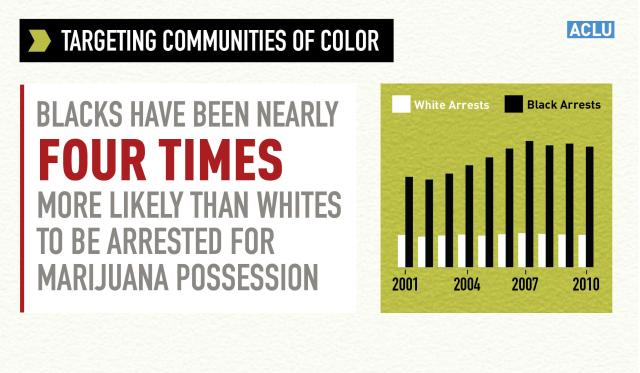
At least 8 states are voting on cannabis legalization in 2016. One of the most progressive ballot measures is California’s “Adult Use of Marijuana Act,” which if passed will create a fund from marijuana taxes to reinvest in local communities where unjust drug arrests have torn apart families. Also included are provisions about recycling grow lights, use of public lands, and removing barriers for individuals with prior drug convictions – because in an the utmost irony, many who have been put in jail for having successful entrepreneurial endeavors with our favorite female plant are now banned from legally making green. Women like Shaleen Title of THC Staffing Group are working on economic empowerment for people of color, because the government-licensed legitimacy required to sell cannabis legally costs money and can be a barrier to many.
Step up, please: white people need to get together with their peers and address white privilege. #womengrow #diversityincannabis
— Women Grow (@womengrow) February 6, 2016
My own interest in cannabis comes from being the daughter of a cancer patient – one that had numerous health interventions such as feeding tubes, pain prescriptions, and intense bouts of chemotherapy that could have been mitigated by cannabis. Painkillers are especially fraught; more than 18 women a day are dying from prescription painkillers. My personal she-ro, Elizabeth Warren, just called on the Center for Disease Control to look to cannabis as an alternative.
In her keynote, Etheridge rejected the conveyer belt of medicines that follow chemotherapy for cannabis. “I did not take the steroids or the pain reliever or the other four or five medicines with side effects that they wanted to give me that could be solved by this one plant.”
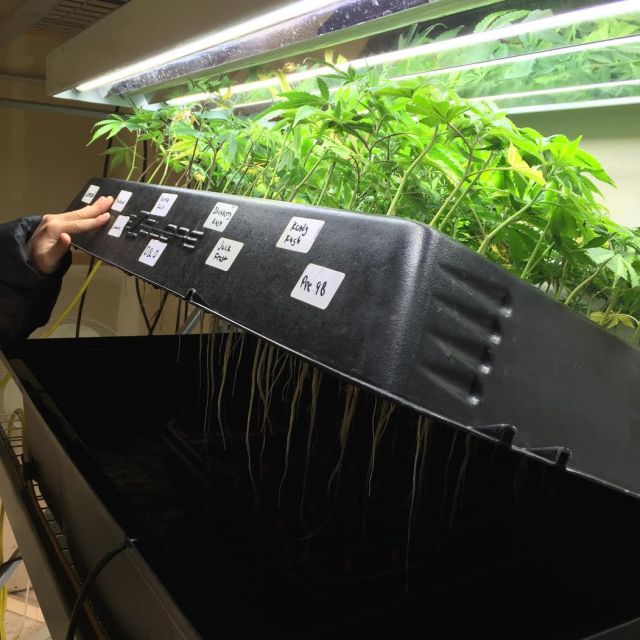
How to grow cannabis sustainably is one of the major issues in the industry right now. Hydroponic growing helps keeps the roots intact.
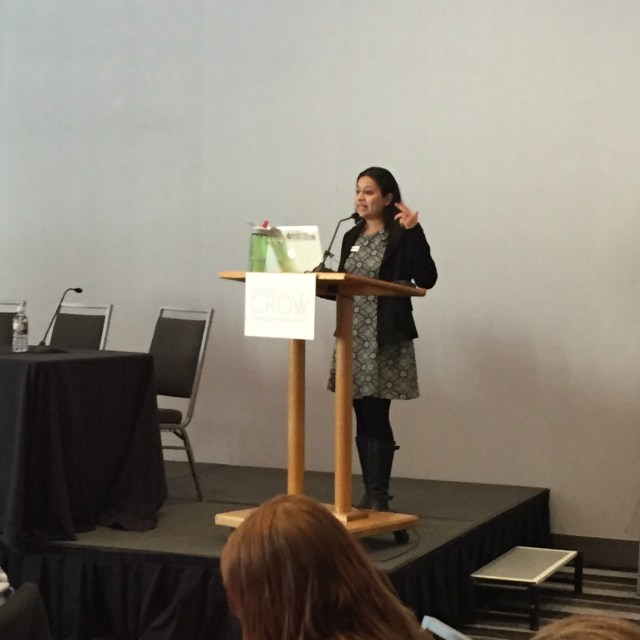
Dr. Daniela Vergara of the Cannabis Genomic Research Initiative, explains the gender diversity in the ancestors of cannabis plants.
A major highlight of the conference was Renee Gagnon, the first woman CEO to take a cannabis company public, which she did during her gender transition. She also happens to be a board member of Women Grow, Vancouver Island. When the Canadian government opened bids for dispensaries she had a proposal on their desk within four hours. “I want you to know you can do it: you can have a family, you can take a company public,” Gagnon encouraged her captive audience in Denver’s Ellie Caulkins Opera House.
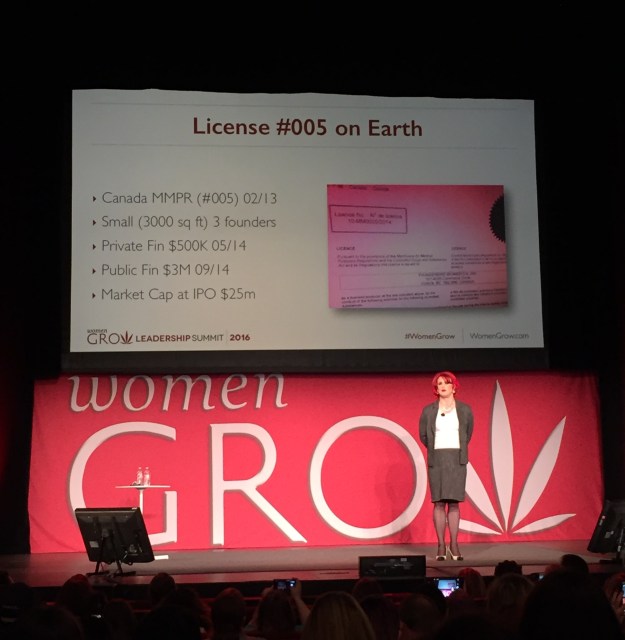
Renee Gagnon, on being the first woman and first trans person to take a cannabis company public.
Just as racial diversity and inclusion in hiring is integral to the future of the cannabis movement, Renee spoke with me privately about the influx of young queers in business. “There’s an obligation for LGBT business owners to actively bring up and hire the next generation of LGBTQ leaders. We had to bring ourselves up and that was scary and very lonely I don’t want some young struggling lesbian, gay, or bi business person to think that their life is dictated by their genitals.” Renee herself came out two years ago.
Over tapas and chatter, several of us Latina and Arab women discussed our plans for dominating the budding industry and what it means to be a woman. A fellow Women Grow chapter chair and I championed the term queer. We talked female masculinity, queer theory, and horticulture. Women in the cannabis industry are actually incredibly queer. One speaker publically came out as a lesbian on stage, which took more courage for her than raising $100 million and acquiring 10 companies in the manufacturing industry. Another gave me free sensual cannabis oil after I told her I was queer, from one dyke to another. Women spoke about bringing their partners from the bedroom to the boardroom, and the strain of business in a romantic relationship. What I learned is that there are different types of fear, and sometimes asking for money is the least of your worries.
But you should always ask for money. After all, 20% of angel investors are women, but nearly 90% of venture capital funding goes to men. In order to get yours, you have to ask for it. And the message of the week is that you deserve it.
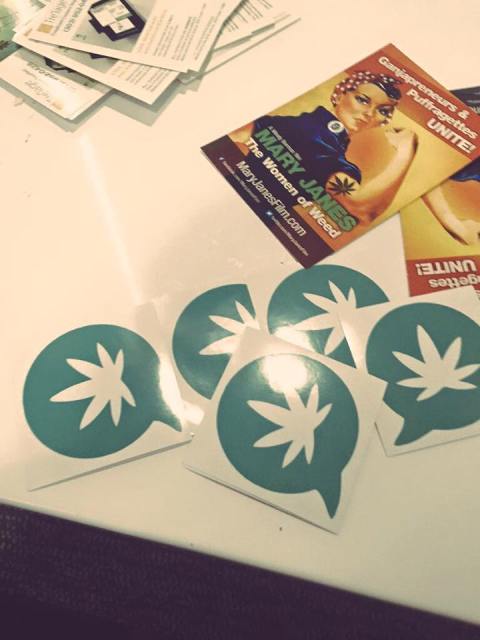
Spark the Conversation stickers encouraging people to talk about cannabis.



This is incredibly interesting!
OMG this sounds amazing and awesome. I take non-binary people would be welcome to such event?
Was there any discussion on Patent No. 6630507, and how that may effect business? I know the feds own it and it has had me curious on how that could come into play.
Hey, AI yes I wrote a little bit about female masculinity / personally identifying as genderqueer but that didn’t make the cut. There were a few queer / gender-non-conforming persons in attendance and Renee going up there as the boss madame really generated a solid conversation about gender and what it means to be an ally in the cannabis community. PLUS, Julie Netherland of Drug Policy Alliance is one of the major faces of marijuana policy and is MoC. She is pretty rad. http://www.drugpolicy.org/about-us/staff-and-board/staff/julie-netherland-director-office-academic-engagement
Ah, well I am more FOC as I am amab. Thank you for the reply.
NP, MoC is just something I more identify with. We have queer and trans women in our leadership, so amab isn’t at all a barrier to participaton. As I mentioned in the article, Renee (a trans* woman) is on the board of the Vancouver Island Women Grow chapter. If I think of any other FoC trans*folk in cannabis leadership I’ll let you know!
I was there. I was there and it was incredible.
I am making my own moves on the ground in DC and Maryland with my humble tea company, Hemp Kettle Tea Co.
For all women and queers trying to get in the green zone, capitalize on your talents, your intelligence, and your identity.
If you are queer, you reject the binary. Imagine that this is a metaphor for all other things. When you reject the superficially imposed limitations of socially constructed life, then you are really ready to tear down some walls and build something special.
Dream and make the things you want to see in the world. Find a Women Grow chapter near you! I am so very lucky to be able to hang with the DC and Baltimore chapters.
This looks so interesting!
I would love to participate in this, being that I fantasised about quitting my job and starting in the marijuana business.I’m passionate about the plant’s healing properties and I think that people should be able to choose what they put in their own bodies. Why should someone should be denied access to marijuana because someone else doesn’t like it? Makes no sense at all.
How would you go about attending this?
I also wish I could edit my comment. :(
There are Women Grow chapters in 44 cities across the US and Canada — if you want to get involved you can find the meetings here: http://womengrow.com/signature-networking-events/
There are some other organizations you can join, and if you are a student I highly recommend SSDP (Students for Sensible Drug Policy). If you live in a marijuana-friendly state, there may be local Marijuana Business Association (MJBA) meetings. Activist meeting spaces include Americans for Safe Access (ASA) and NORML, among others.
All this movement sounds incredible and amazyng heared from spain.
I hope all this grow fast.
Congratulations
DAT PUN!
Ahem, love the title of this article.
I would like to just have one of these women as a mentor and learn more from them. This industry is tough, so it takes a smart individual with a good attitude.
This was a super interesting read!
Women are taking over Canadian cannabis and it’s amazing! Great to see all the cool projects were seeing today in 2021
What a great article, so many fresh faces in the industry! So great to see the women taking over!
Hello! I’m new to growing hemp and would love any tips or tricks you can share. I’m interested in everything from proper pruning to the best time to harvest. I would be grateful for any knowledge and experience you can provide. Thanks in advance!
Hello, fellow growers! Starting your marijuana cultivation journey can be a little daunting, but fear not. There’s a helpful blog post on the difference between male and female weed seeds available at https://askgrowers.com/blog/types-of-weed-seeds. It provides valuable insights into different seed varieties, helping you make informed choices for your growth. Take a moment to explore the article and gain a deeper understanding of the seeds you’ll be working with. Good luck!